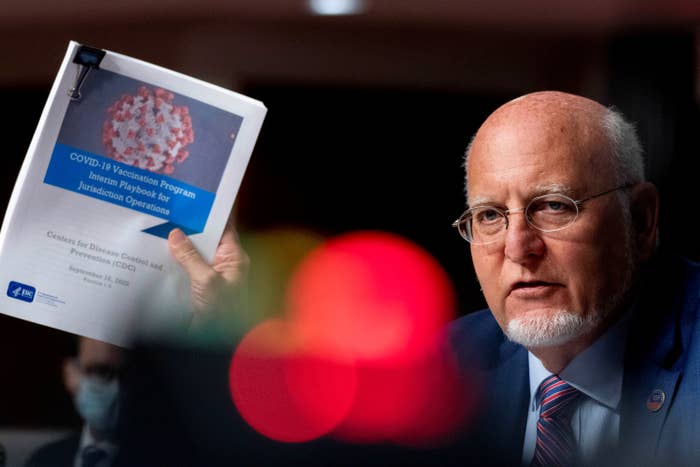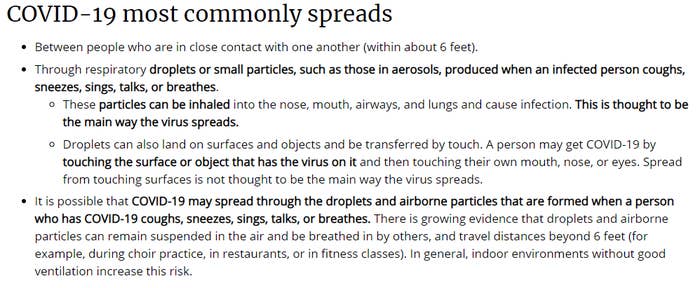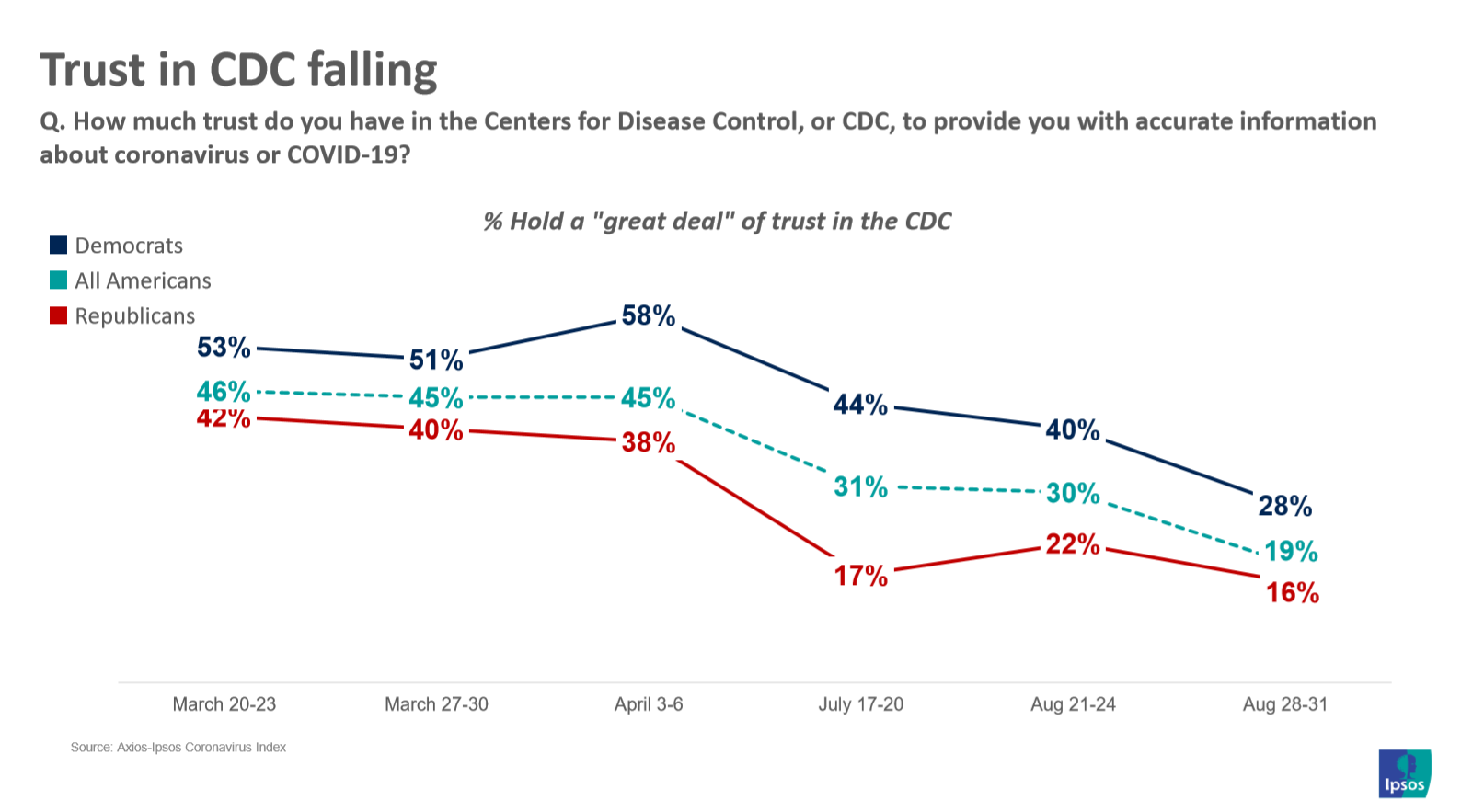
The US Centers for Disease Control and Prevention removed its new guidance for stopping airborne coronavirus transmission on Monday, sparking more concerns that the Trump administration may be interfering with its health advice.
The agency's new "How COVID-19 Spreads" guidance, initially posted on Friday, acknowledged that the virus can spread by aerosol droplets released when infected people breathe, talk, and sing, spreading infectious particles beyond the 6-foot limit widely used as a guide for distancing. Many virus experts have been calling for such a change to be reflected in public health guidance.

But on Monday, the guidance was removed and the agency's website was updated to say that "a draft version of proposed changes to these recommendations was posted in error."
Another change to the @CDCgov website: "CDC is currently updating its recommendations regarding airborne transmission of SARS-CoV-2 (the virus that causes COVID-19)." https://t.co/4T3nWtTlJW Info about aerosols no longer appears. Not sure what's going on.
Jason McDonald, a spokesperson for the CDC, said that the updated guidance was improperly posted online. "Internal CDC program’s concerns regarding COVID-19 transmission language led to revision of the 'How COVID-19 Spreads' web page without appropriate in-house technical review," McDonald said. "We are reviewing our process and tightening criteria for review of all guidance and updates before they are posted to the CDC website."
Jose-Luis Jimenez, a chemistry professor at the University of Colorado, Boulder, called the situation “a total mess.” “We are beside ourselves,” he told BuzzFeed News.
"This is not a usual thing to have CDC put up and take down guidance. It is not normal," Anita Desikan of the Union of Concerned Scientists, a science agency watchdog, told BuzzFeed News. The CDC would be expected to update its guidance on a new, dangerous disease as it learns more, but those changes are supposed to come only after a thorough review.
"Even if it is just a screw-up, it's a problem to have CDC screwing up," Desikan added. "It is undermining public trust."
For months, Jimenez and dozens of other experts had been urging the CDC and other health agencies to recognize a growing consensus that aerosol transmission likely accounts for most COVID-19 transmission. To these scientists, the CDC’s update on Friday was welcome, and long-overdue, news.
Do you work at the CDC? Contact these reporters at dan.vergano@buzzfeed.com or stephanie.lee@buzzfeed.com, or securely at tips.buzzfeed.com.
“Finally a major health organization was listening to the science and updating their position. We were very happy about this, all the scientists working on this issue,” he said. “Now what happens today, who knows what the reason is?”
It could turn out to be a mistake as simple as uploading a draft prematurely. Or, Jimenez feared, it could be an instance of the White House once again interfering with the CDC’s public health messaging. As the New York Times reported last week, a widely criticized CDC recommendation about who should get tested for the virus was written by officials at the Department of Health and Human Services and posted online over the objections of CDC scientists.
Whatever the reason, Jimenez said that the flip-flop over aerosol transmission was yet another instance of the agency giving off an “extraordinarily confusing” message.
“It diminishes the trust of the CDC, which was already weakened by all the things that have happened recently, which is the last thing we need," he said. "We’re in a pandemic. It’s likely that we have a fall and winter ahead of us that are going to be very difficult. We need the public institutions to have a clear message based on science and not to be announcing something on Friday and pulling it out on Monday.”

Over the course of the pandemic, which has killed nearly 200,000 Americans, clashes between the agency and the White House have contributed to the public's declining trust in the CDC, once the world's premier public health agency. Just last week, President Donald Trump rebuked CDC Director Robert Redfield's call for masks, calling his projection that a mass vaccine wouldn't be widely available to the public until next summer a "mistake."
Only 19% of Americans said they trusted the CDC's guidance on the coronavirus in August, according to Axios–Ipsos polling.
UPDATE
This story has been updated to include comment from a CDC spokesperson.

